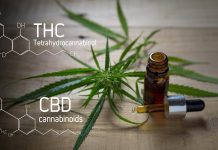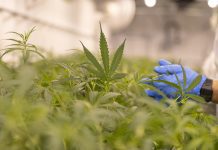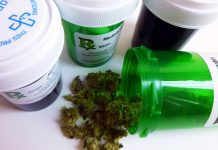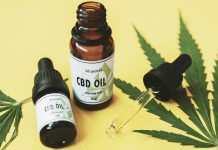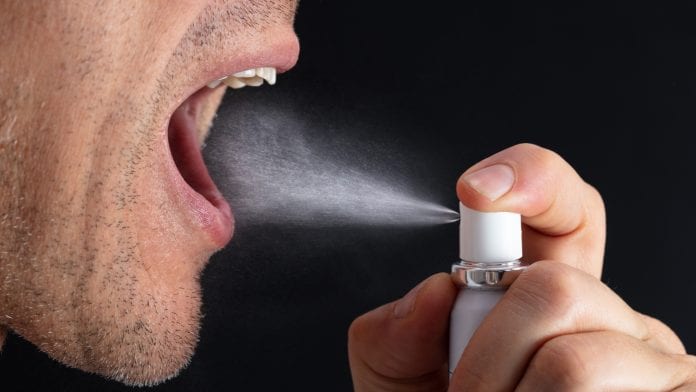
In a new study results have shown that cannabis treatment can help tackle dependency on cannabis.
An Australian study has demonstrated that cannabis-based medication helps tackle dependency on cannabis in a comparable way to nicotine replacement.
A paper about the University of Sydney and NSW Health clinical trial provides the first strong evidence that so-called cannabinoid agonist medication – which targets receptors in the brain – could reduce people’s use of cannabis.
The paper was published in the American Medical Association’s JAMA Internal Medicine. Lead author Conjoint Professor Nick Lintzeris at the University of Sydney’s Faculty of Medicine and Health and Director of Drug & Alcohol Services, South East Sydney Local Health District, said the study should give hope to people with dependency on cannabis, which is a leading cause of drug treatment episodes in Australia.
Cannabis treatment
Professor Lintzeris said: “We’ve never had the evidence before that medication can be effective in treating cannabis dependency – this is the first big study to show this is a safe and effective approach.
“The principles are very similar to nicotine replacement; you are providing patients with a medicine which is safer than the drug they’re already using and linking this with medical and counselling support to help people address their cannabis use”.
The trial
The clinical trial was a 12-week outpatient trial of 128 participants taking nabiximols medication followed an earlier study by the same research team that had previously shown nabiximols reduce withdrawal symptoms in a short-term hospital cannabis treatment programme.
Lintzeris said: “The latest study published today is even more important in that it shows that nabiximols can be effective in helping patients achieve longer term changes in their cannabis use”.
Co-author of the paper Professor Iain McGregor, the academic director of the University’s Lambert Initiative for Cannabinoid Therapeutics, said: “Worldwide we are seeing medicinal cannabis patients transition away from the traditional smoked route of cannabis administration; this new study… complements this trend by showing that an oral spray can be an effective substitute for smoked cannabis in heavy recreational users seeking treatment for their cannabis use”.
Professor Lintzeris said an important element of this National Health and Medical Research Council-supported trial was that only cannabis users were recruited who had previously unsuccessfully tried to curb their use.
“Our study is an important step in addressing the lack of effective treatments. Currently, four in five patients relapse to regular use within six months of medical or psychological interventions”.
Trial and medication snapshot:
- During the clinical trial, participants had an average dose of about 18 sprays a day, with each spray of 0.1mL comprising 2.7mg of THC and 2.5mg of CBD
- Participants treated with nabiximols used significantly less illicit cannabis than patients randomly allocated to placebo medication
- The medicine was combined with cognitive behavioural therapy (CBT) and other therapeutic support for a holistic approach
- Health and behavioural benefits of cannabis replacement include that patients are taken out of their usual patterns of use and
- This first large outpatient randomised controlled trial of the cannabis extract medication noted suppression of withdrawal and cravings, with improvements in physical and psychological well-being.
Nabiximol
So, what is Nabiximols?
The National Cancer Institute states: ‘It is a ‘herbal preparation containing a defined quantity of specific cannabinoids formulated for oromucosal spray administration with potential analgesic activity. Nabiximols contains a standardised extract of tetrahydrocannabinol (THC), the non-psychoactive cannabinoid cannabidiol (CBD), other minor cannabinoids, flavonoids, and terpenes from two cannabis plant varieties. Cannabinoids interact with G protein-coupled cannabinoid 1 (CB1) receptors in the central nervous system, resulting in analgesic, euphoric, and anticonvulsive effects’.
The drugs product name is Sativex and is made by GW Pharmaceuticals. It has been approved in a number of countries for medical use including Australia.
Sativex has been studied in a number of clinical trials, with one including more than 1500 patients with MS at doses of up to 48 sprays per day in controlled clinical trials of up to 19 weeks.
In an Australian Public Assessment report on Sativex, regarding side effects, it noted: ‘Common application site reactions include application site pain, oral pain and discomfort, dysgeusia, mouth ulceration and glossodynia. Two cases of possible leukoplakia were observed but neither was confirmed histologically; a third case was unrelated. In view of this, patients who observe discomfort or ulceration at the site of application of the medicine are advised to vary the site of application within the mouth and should not continue spraying onto sore or inflamed mucous membrane. Regular inspection of the oral mucosa is also advised in long-term administration’.
Other side effects include depression, dissociation and the report said that in a few cases a causal association between Sativex administration and suicidal ideation could not be ruled out.
It also noted that individual response to Sativex varies widely between patients and points out a number of contradictions from the product, including in patients with known or suspected family history of ‘schizophrenia, or other psychotic illness; history of severe personality disorder or other significant psychiatric disorder other than depression associated with their underlying condition’.




